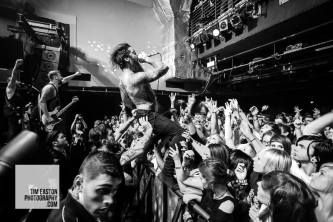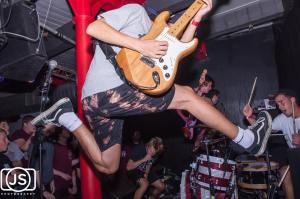If you have an iPhone, a Samsung galaxy or any other smartphone the chances are there are a few apps you will have; Facebook, messenger, maybe a news-stand, vine, and of course…Instagram; the app that allows everyone to share photos of well… everything.
Since its launch on October 6th 2010, Instagram has boomed and become one of the most popular photo sharing platforms in the world, with over 200 million active users a month sharing a massive 60 million photos per day (stats from http://instagram.com/press/ ). These pictures go from food to “selfies” and everything in between. Which, although it has created a huge community, bringing people worldwide closer through image sharing, it has also created a generation that, by those in the professional line, is normally critiqued; the generation of “iPhone photographers”.
So for those of you that don’t know what Instagram looks like, the above is mine…I have a fair few followers and I post a LOT. But I am in no way a photographer, my photos are average at best. So why do we get some teens, or even young adults, who think that, because they have an iPhone and instagram, they’re a “photographer”? The answer is simple; everyone wants to get noticed, and the internet, especially on a visual level, is an easy way to achieve this. You take a picture, stick a nice filter on and share it, a few hundred, maybe thousand people see it, (if the hashtags are right) and you feel a little bubble of pride at all these strangers liking your picture, to probably never look at it again. So as a hobby, you’re probably a photographer, but a professional? Someone learning the trade so they can take this as a real career? Kids, you’re all wrong.
A lot of photographers will use Instagram purely as a platform to get work noticed; they can edit their photos as they would normally and then post them on whichever platforms are vital for getting their work out there. My friend Andi who does a lot of photography whilst travelling has even said that for a lot of photographers they have to “work with what they have” and that iPhones have made this easier to do so as it’s always on you; if you’re exploring an abandoned building for example, it’s easier carrying a phone than a camera.
http://instagram.com/p/raVK53ujaz
Ofcourse some photographers are a lot more traditional and prefer working with cameras, yes phones are more handy, but for some it just isn’t the same; photography should be done on a proper camera – DSLRs more often than not nowadays. The problem with this, as pointed out to me, is that with the rise of iPhone photography, DSLR cameras are becoming cheaper and cheaper, allowing everyone to become a “photographer” making it harder for those in the industry.Timothy Easton (work shown below), a budding photographer who documents a lot of gigs stated “kids are going to shows thinking they can make a substantial living out of ‘touring with bands omg’ when really the bands themselves aren’t making enough money to support themselves in some cases and the photographer is the bottom of the pile” which is a valid point given that at a gig the vast majority of people are stood with their phones held up, blocking the view for everyone else but also, surely, ruining the experience for themselves. Photographers tend to stand at the front, in front of the crowds or even closer to the stage than anyone else is allowed for a reason; they get better shots and even though the cameras are bigger than phones, they block the view a hell of a lot less.
Another photographer I know, Joe Sheridan who photographs a lot in Manchester, expanded on this idea even further; “The ironic thing about the smart phone culture is how many people you see capturing their moments on their phones at concerts, and will afterwards, or during post what they have captured, yet compared to professional photographers, their photos have an impact in the immediate present, and the future, but for those are trying to get their shot for their Facebook, or Instagram profile it’s futile, the photo will go up and just like many others they took will probably never look at ever again. I myself do not yet consider myself to be a professional photographer, although it is my endeavour to pursue that.
Albeit, everyone has their right to do what they wish when capturing a shot at a concert, but it’s cultivated this throw away culture of taking photos just to say, “hey, I was here”. In a world where digital technology has catapulted photography as a medium for self-expression, it has meant that more than ever the sharing of photos is bigger than ever, it means for novices, or professional photographers, when sharing, and creating traction from your work can be more difficult, because everyone is a critic now.”
This shows that iPhone photography may have had a bigger impact than one would think, and that maybe it isn’t just the teens with iPhones that are a threat to professional and industry photographers but rather anyone who can get hold of a camera, some roses and a black and white filter. I for one, hope that talented photographers can use social media platforms to get the recognition they need in order to promote their work and get their name out there without too much threat from the rest of the “moment-capturing” instagrammers in the world.


